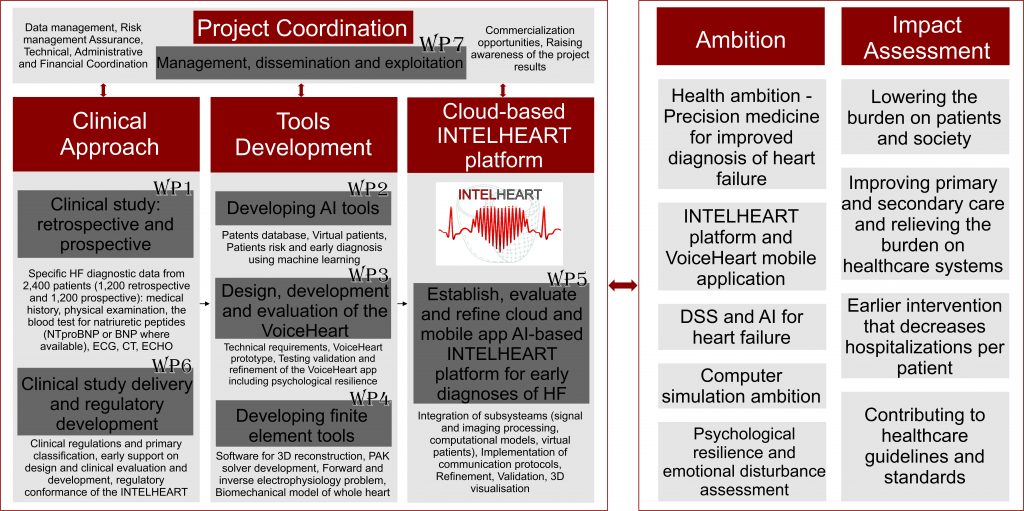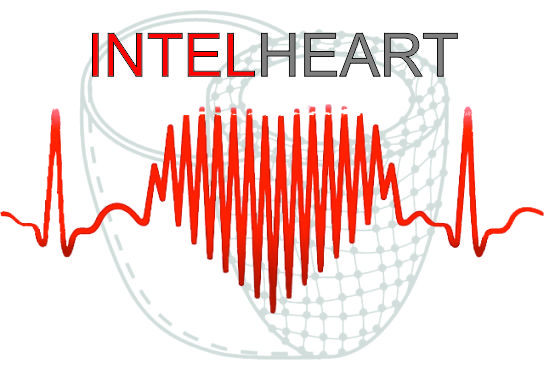Artificial INTELligence-based Decision Support System for Early and Accurate Diagnosis of HEART Failure
Project Acronym: INTELHEART
Principal Investigator (PI): Smiljana Tomašević
Project start: 3rd January 2024
Project duration: 3 Years
Despite considerable advances in the management of HF, the gold standard for the treatment of end-stage HF patients remains heart transplantation. But there is only a small percentage of patients who could benefit from a new heart due to the limited availability of donor organs. Improving awareness of the very end stages of HF is emerging as a major need for the clinical community.
The aim of INTELHEART is to combine the expertise from clinical practice with excellence in the computer, biomedical engineering, health technology assessment and implementation sciences to develop and implement the finite element and AI-based computerized digital platform for early and accurate diagnosis of HF for primary and secondary care clinical needs (i.e. outpatient, inpatient, and emergency departments). After collecting retrospective and prospective patient-specific data from standard and novel devices: portable, smartphone-controlled, patient-friendly ECG; AI-driven, smartphone-controlled VoiceHeart mobile app biomarker including psychological resilience and emotional disturbance measurements, data will go to different AI tools for machine learning and developing virtual patient population.

A specific finite element model of the whole heart with fluid-structure interaction and PV diagram with specific work indexes will be used to predict patient-specific heart behaviors and provide sufficient information to physicians to evaluate the progress of diseases and the efficacy of administered therapeutics. Finite element and AI-driven technology will be built on the cloud-based platform.
Existing research on the patient perspective of HF is limited and many untested assumptions are made about what we think is best for people with HF and what matters to them most – with little confirmation that these are meaningful or correct. Our overall ambition is to improve the quality and length of life for patients and to reduce the economic burden of HF on health care systems worldwide. The strategy on how to approach this goal is to offer primary and secondary care with novel technology-based computational tools finite element and AI which will allow early and accurate diagnosis of HF.
